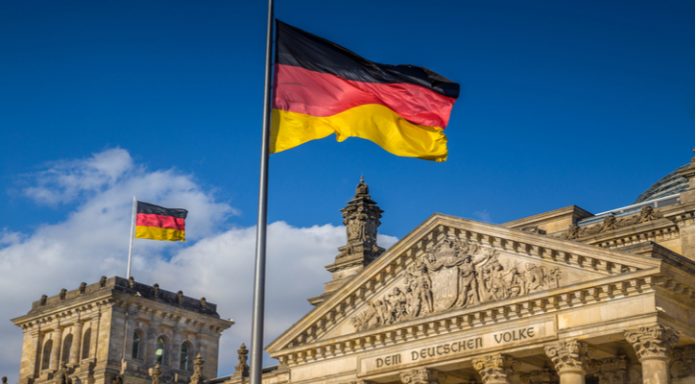- Pound (GBP) holds onto yesterday’s gains
- Services PMI showed a strong expansion
- Euro (EUR) holds steady after German data
- The ECB still likely to cut in June
The Pound Euro (GBP/EUR) exchange rate is holding steady after gains yesterday. The pair rose 0.35% in the previous session, settling on Tuesday at €1.1630 and trading in a range between €1.1565 and €1.1639. At 10:00 UTC, GBP/EUR trades +0.01% at €1.1631.
The pound is holding onto yesterday’s gains after stronger than expected service sector PMI data boosted sterling.
Yesterday, PMI data showed that UK business activity grew at the fastest pace in almost a year in April, while UK manufacturing dipped to a two-month low.
However, input price inflation accelerated sharply this month, although selling price inflation cooled slightly, which may have caused some concerns at the Bank of England when considering when to start cutting interest rates.
The data comes after recent Bank of England policymakers have sounded quite optimistic about the inflation outlook. Should the central bank start to become bolder in signaling rate cuts in the coming weeks, that could put more pressure on the pound. The next Bank of England meeting is in just over two weeks and could be key for signaling the central bank’s next move.
There is no high-impacting UK economic data due to be released today, which could mean the pound will drift.
The euro is struggling against the US dollar and holding steady against the pound despite a marked improvement in German business sentiment.
The closely watched German Ifo business climate index rose for a third straight month in April to 89.4 up from 87.9 in March. This was ahead of expectations of 88.8.
The data suggests that the economy is stabilising, particularly thanks to the strengthening service sector.
Yesterday, German services PMI came in significantly higher than expected to a 10-month high of 53.3, up from 50.1. The strong data help support views that the eurozone’s largest economy could be starting to recover.
Even if there are signs of recovery within the eurozone, which is encouraging news, this is unlikely to knock the ECB off its track of cutting interest rates at the June meeting. Expectations of a rate cut in the coming month could keep pressure on the euro.





